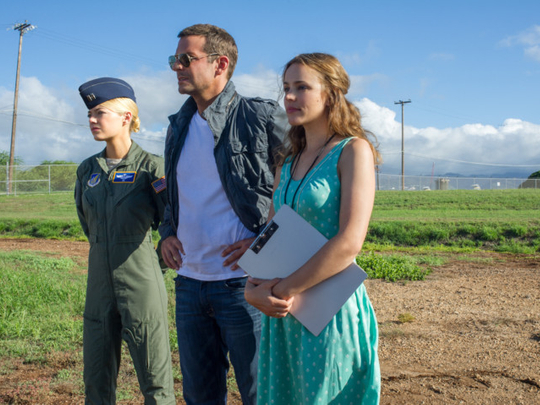
The bad buzz has been building for months and finally this week US critics were allowed to see whether Cameron Crowe’s new film Aloha was lei-me or not. The answer: yes and very.
The romantic comedy, which sees defence contractor Bradley Cooper fall for pilot Emma Stone, has received a string of damning reviews in the US.
The Hollywood Reporter called it “deeply confused” with “mostly forced” chemistry, Variety said it was “fatally misguided”, IndieWire labelled it “shockingly bad” with “horrific dialogue” and The Washington Post referred to it as an “incoherent pu pu platter”.
The negative reaction to the film (it currently has a 14 per cent rating on Rotten Tomatoes ) follows a troubled journey to the screen with rumours of reshoots and heavy editing and leaked emails suggesting that ex-Sony head Amy Pascal wasn’t a fan of the film. The original release date was moved from last December to May, which jars with the film’s Christmas setting.
There was further trouble earlier this week when Cameron Crowe was accused of “whitewashing” Hawaii by failing to portray the large Asian-Pacific Islander population of the island.
The Media Action Network for Asian Americans called the film an “insult to the diverse culture and fabric of Hawaii”.
It’s disappointing news for writer/director Crowe who suffered a similar misfire with the Orlando Bloom/Kirsten Dunst comedy Elizabethtown in 2005. The film went on to make just $26 million (Dh95 million) in the US. Analysts are predicting that Aloha, opening up against earthquake thriller San Andreas, could open to $12 million although the negative reviews could impact this number.













